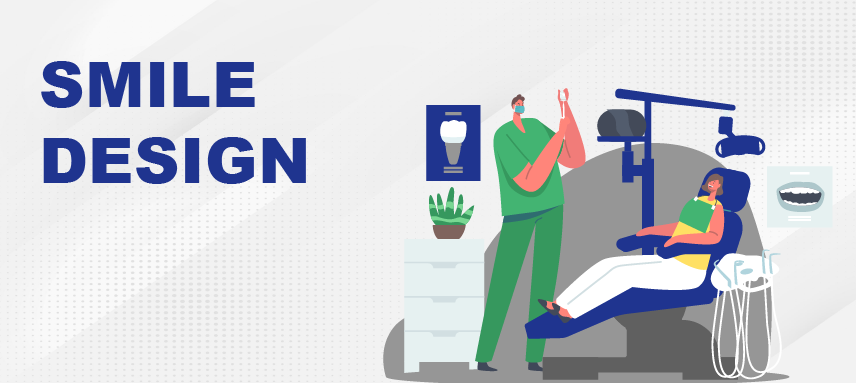Click To Call
+90 553 935 69 70

What is smile design?
One of the first concepts that comes to mind when it comes to aesthetic dentistry is
"smile design". Smile design; It is the process of giving a natural and beautiful
appearance to the teeth and gums that have deteriorated aesthetically for various
reasons, taking into account the face shapes and needs of the patients. Smile
design, which is a multidisciplinary approach, is carried out by applying many
processes together.
What processes does smile design involve?
Since the aesthetic requirements of each patient will be different, the procedures to
be performed are determined individually. While determining these procedures, the
patient; Factors such as facial features, gender, age and expectations are taken into
account.
First of all, existing decayed teeth and gum diseases are treated, tooth cleaning
procedures are applied. Afterwards, procedures are determined according to the
needs of the patients. These processes are generally; They can be counted as
gingival aesthetic interventions called gingivectomy, teeth whitening (bleaching)
methods, compensation of tooth deficiencies with implant and prosthesis
applications, porcelain laminates and coatings, zirconium coatings and orthodontic
treatments (wire treatment).
How is Smile Design done?
First of all, it is very important to understand the aesthetic expectations of the patient
correctly and to determine the needs correctly in smile design. Problems are
determined and plans are made on the models prepared through the measurements
taken from the patient's mouth. Afterwards, measurements are made using special
programs in the computer environment with the oral and facial photographs of the
patients and the fit for the face shape is calculated. The most approximate images
that will occur after the treatment are presented to the patient with programs and
temporary restorations prepared in accordance with the original in the patient's
mouth and their opinions are taken.
After the planning is completed, if orthodontic treatment is not needed, first of all, the
level disorders in the gums are arranged. In cases where tooth deficiencies are
found, planned implant procedures and other surgical applications deemed
necessary are performed. After the healing periods of surgical applications are
completed, teeth whitening processes are applied if needed. After this stage, visualand morphological defects in the teeth are sometimes removed by means of
aesthetic composite fillings. In cases where this method is not sufficient, porcelain
laminates and veneers and zirconium veneers come into play. For porcelain laminate
applications, either no abrasion or minimal abrasion is performed on the teeth. If
porcelain or zirconium applications are deemed appropriate, some changes can be
made by taking the patient's ideas again in the rehearsals made during the stages.
During all these gingival and dental applications and rehearsals, lip shape and
contour are also taken into consideration and the targeted design is finalized.
Sometimes, medical aesthetic applications are also used during smile design.
Dermal filling on the lips and face areas, etc. smile can be brought to the fore with
applications.